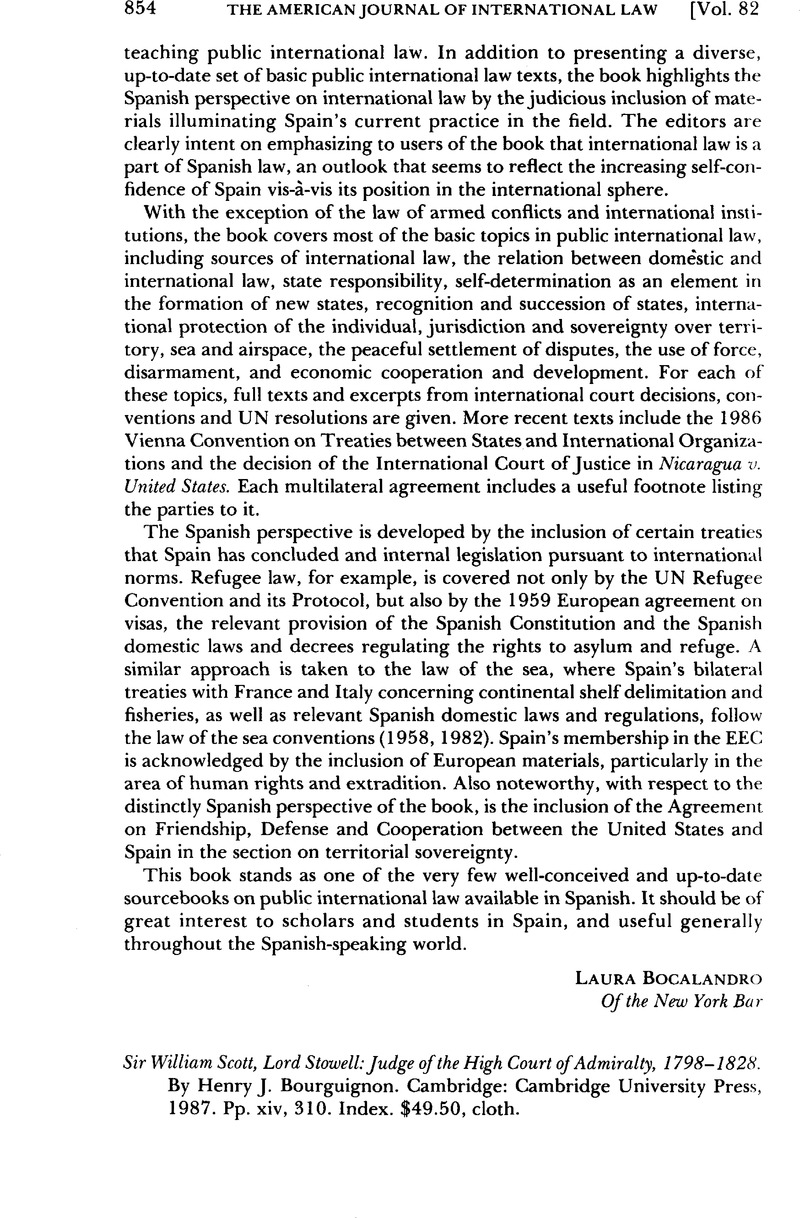No CrossRef data available.
Published online by Cambridge University Press: 27 February 2017

1 See 1 J. Kent, Commentaries on American Law 69–70 (1832).
2 See H. Wheaton, A Digest of the Law of Maritime Captures and Prizes (1815); H. Wheaton, Elements of International Law (G. Wilson 8th ed. 1936).
3 Story and Scott carried on a vigorous correspondence throughout their later lives. See 1 W. W. Story, Life and Letters of Joseph Story 307 (1851). See also R. Newmyer, Supreme Court Justice Joseph Story—Statesman of the Old Republic (1985).
4 See The Venus, 12 U.S. (8 Cranch) 253, 299 (1814); B. Ziegler, The International Law of John Marshall (1939).
5 As a consequence, such famous cases as the Le Louis, 2 Dod. 210 (Adm. 1817), dealing with the right of visit on the high seas for vessels suspected of engaging in the slave trade, are not discussed.
6 See F. Wiswall, The Development of Admiralty Jurisdiction and Practice Since 1800, at 33 (1970).
7 The Apollo, 1 Hag. 306, 312 (Adm. 1824).
8 See United States v. The EUROPA, 80 F.Supp. 12 (S.D.N.Y. 1948); Ling v. 1,689 Tons of Coal, 78 F.Supp. 57 (W.D. Wash. 1948).
9 Scott’s opinion in The Young Jacob and Johanna, 1 C. Rob. 20 (Adm. 1798), had to be distinguished in that most sublime of decisions, The Paquete Habana, 175 U.S. 677, 693–94 (1900) (Gray, J.), which ruled that coastal fishing vessels may not be taken as prize. See also id. at 719 (Fuller, C. J., dissenting). Another example of Scott’s influence is his decision in The Indian Chief, 3 C. Rob. 12, 29, 165 Eng. Rep. 367, 374 (Adm. 1801), which spawned a remarkable debate on the law of extraterritorial domicile.
10 The Venus, 12 U.S. (8 Cranch) 253, 299 (1814).
11 See Janis, Jeremy Bentham and the Fashioning of “International Law,” 78 AJIL 405 (1984).